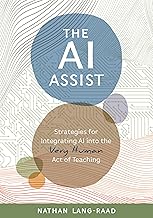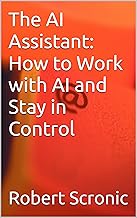In South Carolina, the Lexington-Richland School District 5 is contemplating a significant move for the 2025-26 academic year by potentially acquiring an AI assistant to support teachers in various educational tasks. This initiative aims to enhance lesson planning, customization of instruction for individual student needs, and other essential educational activities.
Superintendent Akil Ross highlighted the potential benefits of providing teachers with a personalized AI assistant, emphasizing its capability to assist in aligning tests with state standards, delivering personalized feedback to students based on their performance, creating tailored worksheets, and developing multilingual texts at different reading levels.
By leveraging generative AI technology, school districts can empower educators with advanced tools to enhance the teaching and learning experience. The introduction of AI assistants could revolutionize the way teachers approach curriculum development and student engagement, ultimately improving educational outcomes.
The Chapin-Irmo district has already implemented a basic version of Magic School, a free educational platform offering AI-supported resources to students and faculty. However, the district is exploring the benefits of upgrading to the paid version to access a broader range of features and functionalities.
To gather insights and best practices, a team from Lexington-Richland 5 is planning to visit Horry County, where Magic School has been successfully integrated into the educational framework. This fact-finding mission will inform the district’s decision-making process as they prepare to allocate funds for the AI assistant in the upcoming budget cycle.
Superintendent Ross estimated the initial annual cost of the AI assistant at $90,000, underscoring the potential value it could bring to over 1,400 teachers within the district. The goal is to streamline educational processes, enhance student outcomes, and alleviate the workload on educators by leveraging cutting-edge AI technology.
During a recent district study, it was revealed that students in an eighth-grade English and language arts class exhibited a wide range of reading levels, posing a significant challenge for teachers. The implementation of Magic School could address this issue by tailoring lesson plans to meet the diverse needs and abilities of each student.
Addressing data privacy concerns, District Technology Director Jenny Garris assured that Magic School does not collect personally identifiable information, thereby safeguarding student privacy. This commitment to data protection aligns with the district’s priorities in adopting technology solutions that prioritize student confidentiality and security.
As the education landscape evolves, the integration of AI assistants in classrooms represents a progressive step towards enhancing teaching practices and student engagement. By embracing innovative technologies like Magic School, school districts can unlock new opportunities to personalize learning experiences and drive academic excellence.
📰 Related Articles
- Physics Professor Josh Samani on Reshaping Education with AI
- Personality Traits Influence Students’ Adoption of AI in Education
- Pearson and Google Cloud Partner to Revolutionize Education with AI
- Online Learning Platforms Enhance Medical Education: Study Insights
- Magic School AI: Revolutionizing Education with AI-Powered Teaching Tools






